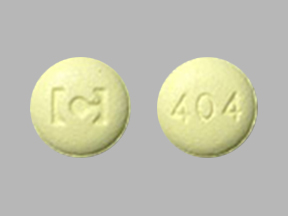
Gabitril Coupons & Savings Card – Discount Prices from $44.87
Brand for: Tiagabine
My prescription
Edit
4MG, Tiagabine (60 Tablets)
Select pharmacy

CVS
$44.87
COUPON PRICE
Walgreens
$112.77
COUPON PRICE
Albertsons
$128.64
COUPON PRICE
Walmart
$211.91
COUPON PRICEGabitril savings card
Show this card to your pharmacist
CVS
$44.87
BIN
ID
PCN
GRP
019876
LH84720772
CHIPPO
LHX
Powered by
Related anti-epileptics prescriptions
More prescriptions for epilepsy
Related anti-epileptics prescriptions
More prescriptions for epilepsy
Gabitril (Tiagabine) dosage forms
Dosage Quantity Price from Per unit 2MG 30 Tablets $31.58 $1.05 4MG 60 Tablets $44.87 $0.75 4MG 30 Tablets $31.58 $1.05 12MG 30 Tablets $74.39 $2.48 16MG 30 Tablets $92.86 $3.10
| Dosage | Quantity | Price from | Per unit |
|---|---|---|---|
| 2MG | 30 Tablets | $31.58 | $1.05 |
| 4MG | 60 Tablets | $44.87 | $0.75 |
| 4MG | 30 Tablets | $31.58 | $1.05 |
| 12MG | 30 Tablets | $74.39 | $2.48 |
| 16MG | 30 Tablets | $92.86 | $3.10 |
What is Gabitril used for?
Gabitril is used primarily as an adjunctive treatment for partial seizures in individuals with epilepsy. It helps to control seizure activity by increasing the levels of gamma-aminobutyric acid (GABA) in the brain, which is a neurotransmitter that inhibits nerve transmission and calms nervous activity.
Is Gabitril used to treat anxiety?
Gabitril (tiagabine) is primarily used as an anticonvulsant medication for the treatment of partial seizures in epilepsy. It is not typically prescribed for anxiety disorders. If someone is considering medication for anxiety, it is important to consult a healthcare provider for appropriate options.
Is tiagabine addictive?
Tiagabine is not considered to be addictive. It is an anticonvulsant medication primarily used to treat seizures. However, as with any medication, it should be used as prescribed by a healthcare provider, and any concerns about its use should be discussed with a medical professional.
What class of drug is tiagabine?
Tiagabine is classified as an anticonvulsant or antiepileptic drug.
How does tiagabine affect the brain?
Tiagabine affects the brain by inhibiting the reuptake of gamma-aminobutyric acid (GABA), an inhibitory neurotransmitter. This action increases the levels of GABA in the synaptic cleft, enhancing its inhibitory effects on neuronal activity. As a result, tiagabine helps to stabilize neuronal firing and is used primarily in the treatment of epilepsy to reduce the frequency of seizures.
